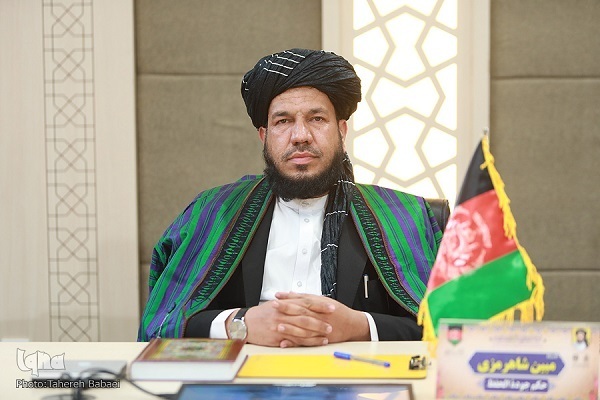Afghan Expert Highlights Role of Mosques and Families in Quranic Education

Speaking to IQNA on the sidelines of the prestigious event, Ramzi pointed to the significance of the competition and the role of mosques and families in nurturing Quranic learning among the younger generation.
Ramzi, who memorized the Quran 30 years ago, has participated in over seven international Quran competitions as a contestant. He has also dedicated 20 years to teaching Quran memorization and currently serves as the Scientific and Educational Deputy of Dar al-Huffaz under Afghanistan’s Ministry of Education. Additionally, he has been judging various Quranic disciplines in Afghanistan for about two decades.
Reflecting on his early days of Quran memorization, Ramzi said, "In the beginning, I was fond of listening to the recitations of Sheikh Khalil al-Hussary and Siddiq al-Minshawi, especially their tahdir style. Later, I tried to emulate the recitation style of Sheikh Muhammad Ayyub and aspired to recite the Quran like these great reciters."
Read More:
This year marks Ramzi’s first time serving as a judge at Iran’s International Quran Competition. He praised the event, noting its high standards and organization. “There is no doubt that Iran is among the few Islamic countries that hold the most Quran competitions annually, both nationally and internationally. This has given Iran immense experience in organizing such events,” he said.
Ramzi added that qaris and memorizers acknowledge the high quality of Iran’s competitions, which often intimidates them due to the rigorous standards, meticulous organization, and the presence of international judges. “The transparency in judging is commendable, and this is a source of pride for the Islamic world,” he said.
Discussing Quranic education in Afghanistan, Ramzi expressed optimism, citing the strong connection Afghans have with the Quran. “Almost 100% of Afghanistan’s population is Muslim, and they have a deep affinity for the Quran. I do not see significant challenges in Quranic education in Afghanistan. Mosques, scholars, and families are all working to ensure the new generation learns and recites the Quran correctly,” he said.
Read More:
He also emphasized the positive impact of technological advancements, including virtual networks, on Quranic education. “The progress in technology has had a beneficial effect on Quranic teaching,” he noted.
Ramzi underscored the pivotal role of mosques and families in Quranic education, drawing inspiration from Islamic tradition. “The noble Prophet Muhammad (PBUH) began his mission from the mosque, which highlights the importance of mosques. The family, as the nurturing center for children, must consider Quranic education a duty and pursue it earnestly,” he said.
Iran's 41st International Quran Competition in Mashhad, organized by the country's Awqaf and Charity Affairs Organization, has brought together Quran reciters and memorizers from across the globe.
Watch More:
The event is widely regarded as one of the most prestigious Quranic competitions in the Islamic world, showcasing Iran’s commitment to promoting Quranic activities and fostering unity among Muslims.
The competition wrapped up on Thursday and the closing ceremony is set to be held later on Friday when top winners will be announced and awarded.
4262813
Interview by Mohammad Ali Haqshenas



